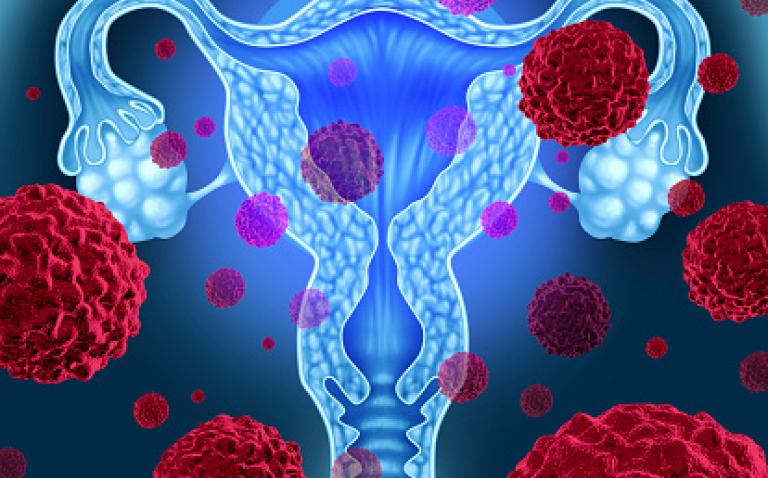Women in Scotland with an advanced and incurable form of cervical cancer could benefit from the targeted treatment Avastin, which has been given the green light by the Scottish Medicines Consortium (SMC) for routine use on the NHS.1
Avastin has been recommended for restricted use in combination with cisplatin and paclitaxel in adult patients with persistent, recurrent, or metastatic carcinoma of the cervix. This submission was made under the Patient and Clinician Engagement (PACE) process, making Scotland the first and only region in the UK to have routine access to this treatment via the NHS.
Professor Nick Reed, Consultant Clinical Oncologist, Beatson Oncology Centre, said: “Cervical cancer is the most commonly diagnosed cancer in younger women. The prognosis for advanced disease or recurrent disease is poor and the symptoms are often uncomfortable and distressing for patients who have to stay in hospital for prolonged periods of time. This is a much-awaited decision in Scotland – there have been no new medicines licensed for over 10 years and the only available treatment has been chemotherapy. Avastin is added to chemotherapy and delays the progression of complications and prolongs life by approximately four months. For any mother, daughter or wife this is an important amount of time as it allows them to continue to work, be more independent and plan for their family’s future.”
Results of the GOG-0240 study showed that Avastin plus chemotherapy (cisplatin and paclitaxel, or, alternatively, topotecan and paclitaxel in patients who cannot receive platinum therapy) increases survival to a total of 16.8 months following a diagnosis of recurrent, persistent or metastatic cervical cancer; an almost four month increase compared to chemotherapy alone (16.8 months versus 12.9 months, p=0.013, HR=0.74). The study also showed that women who received Avastin plus chemotherapy had a significantly higher response rate (45% versus 34%, p=0.012) compared with those who received chemotherapy alone. The SMC recommendation was based on the results of a primary analysis relating to the cohort of patients treated with Avastin plus cisplatin and paclitaxel which were consistent with those of the whole study (overall survival of 17.5 months versus 14.3 months with cisplatin-paclitaxel alone).1,2
Richard Erwin, General Manager of Roche UK, said: “This is good news for women in Scotland and demonstrates how pricing medicines based on how well they work in different indications can benefit patients.
“Equality in access to cancer medicines is an increasing concern for patients, their carers and families. We must build a pragmatic, flexible and sustainable system for assessing medicines so all patients, regardless of where they live, can access the medicines they need. We want to work in partnership with all those involved across the UK so that all eligible patients in need of Avastin, or other innovative cancer medicines, can benefit via the NHS across the board.”
Avastin is a targeted antibody – designed to target cancerous cells and directly starve them of their blood supply – a process called anti-angiogenesis which helps to halt cancer growth and spread.3
The safety profile of Avastin was consistent with that seen in previous pivotal studies of Avastin across tumour types, except for an increase in gastrointestinal-vaginal fistulae observed in patients who received Avastin plus chemotherapy compared to those who received chemotherapy alone (8.3% versus 0.9% respectively). All patients with gastrointestinal-vaginal fistulae after treatment with Avastin plus chemotherapy had a history of prior pelvic radiation.2
References
- Scottish Medicines Consortium. Detailed Advice Document. Avastin (bevacizumab) (1135/16). Available at: www.scottishmedicines.org.uk. May 2016.
- Avastin (bevacizumab)Summary of Product Characteristics 2015. Available at: https://www.medicines.org.uk/emc/medicine/15748 (Last accessed: April 2016).
- US Food and Drug Administration. FDA News. FDA Approves First Angiogenesis Inhibitor to Treat Colorectal Cancer. February 26 2004. Available at: http://www.fda.gov/newsevents/newsroom/pressannouncements/2004/ucm108252.htm (Last accessed: April 2016).
- Jo’s Cervical Cancer Trust. Mini Factsheet – Cervical Cancer. Available at: http://www.jostrust.org.uk/download/file/fid/1236 (Last accessed: April 2016)
- Cancer Research UK. Cervical cancer factsheet. Available at: http://publications.cancerresearchuk.org/downloads/Product/CS_KF_CERVIX.pdf (Last accessed: April 2016).
- National Cancer Institute. Surveillance, Epidemiology and End Results program (SEER) Stat Fact Sheets: Cervix Uteri Cancer. Available at: http://seer.cancer.gov/statfacts/html/cervix.html (Last accessed: April 2016)
- GLOBOCAN 2012: Estimated Cancer Incidence, Mortality and Prevalence Worldwide in 2012. Available at: http://globocan.iarc.fr/Pages/fact_sheets_population.aspx (Last accessed: April 2016).
- ISD Scotland. Cancer Statistics, Female Genital Organ Cancer. Available at: http://www.isdscotland.org/Health-Topics/Cancer/Cancer-Statistics/Female-Genital-Organ/#summary (Last accessed: April 2016).
- Cancer research UK. Cervical cancer survival statistics. Available at: http://www.cancerresearchuk.org/health-professional/cancer-statistics/statistics-by-cancer-type/cervical-cancer/survival#heading-Three (Last accessed: April 2016).
- ISD Scotland. Annual incidence of cancer of the cervix uteri. Available at: http://www.isdscotland.org/Health-Topics/Cancer/Cancer-Statistics/Female-Genital-Organ/(Last accessed: April 2016).
- Roche Data on File RXUKDONF00375, December 2014.










